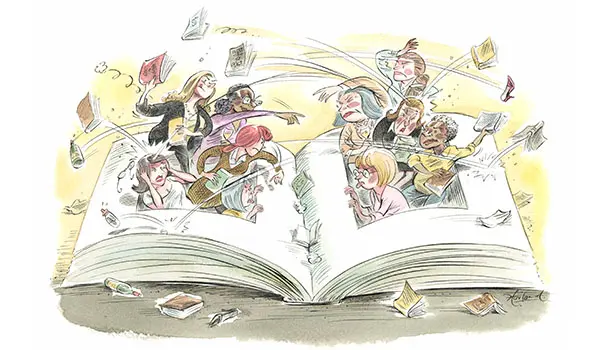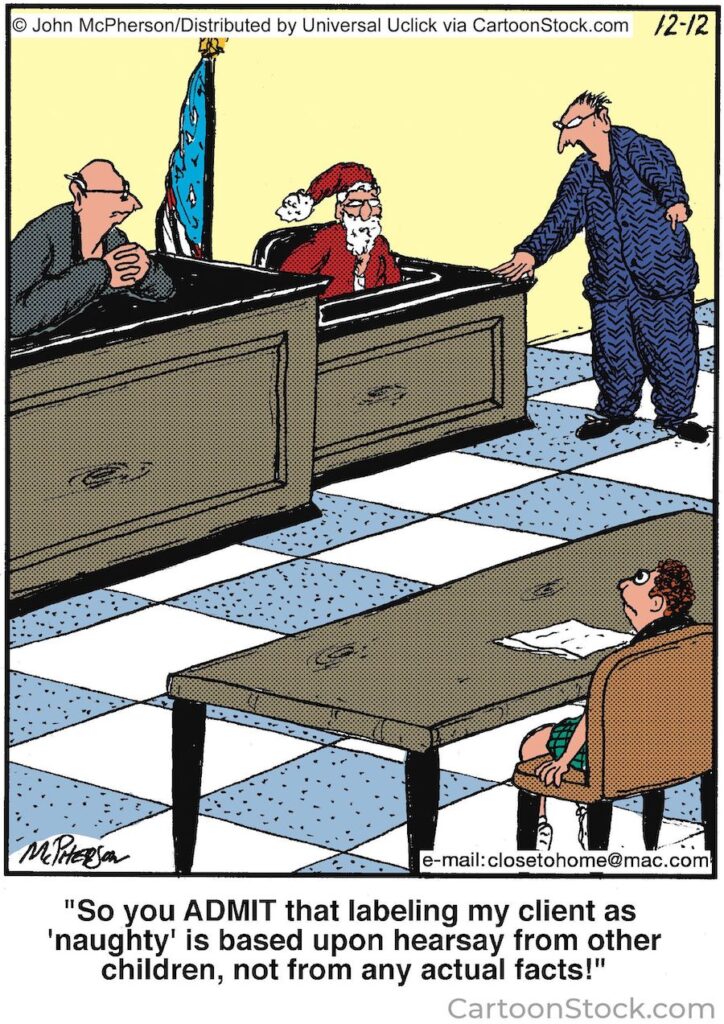A successful book club is where people continue to participate because after each meeting, they go home having enjoyed themselves, even if they might not have enjoyed the monthly book. Or as I always say, our goal is to have fun.
I happened across an article in The New York Times by Joanne Kaufman entitled: “Fought Over Any Good Books Lately?” She writes about the perils of joining book groups where all matter of unpleasant things can happen. In fact the following illustration accompanies the article. (https://www.nytimes.com/2008/12/07/fashion/07clubs.html)

Some are unhappy about book selections. Some grow to dislike others in the group who have opinions they find repulsive. Some feel intimidated by fancy refreshments and the need to “keep up” with others. Some are happy with a brief book discussion followed by a 45 minute chat about everyone’s home life; others feel like they joined a book club in name only.
Sometimes people leave, rarely telling the real reason they leave. Sometimes people are literally “dismissed” from the group by the majority. That would leave a bad taste in everyone’s memory, I would think. In short, there are numerous examples of people who did not enjoy their book group and left it.
Two Things That Contribute to a Successful Book Club
So how do you retain members? By ensuring that they have fun to the extent possible. Many things contribute to a fun time and guard against a distressful time.
One thing that makes a successful book club is when participants are in agreement on the kinds of books to read. This is where the Mystery Book Club has a slight advantage; we are clearly a niche group – we read only crime fiction, although we vary the sub-genres as much as possible. So new members pretty much know the kind of books they will read. We are not likely to have the kind of member complaint mentioned in the NYT article:
Ms. Bowie cannot pinpoint the precise moment when disillusion replaced delight. Maybe it was the evening she tried to persuade everyone to look beyond Oprah Winfrey’s picks, “and they all said ‘What’s wrong with Oprah?’ ” she said.
Or perhaps it was the meeting when she lobbied for literary classics like “Emma” and the rest of the group was abuzz about “The Secret Life of Bees,” a pop-lit best seller.
The last straw came when the group picked “The Da Vinci Code” and someone suggested the discussion would be enriched by delving into the author’s source material. “It was bad enough that they wanted to read ‘Da Vinci Code’ in the first place,” Ms. Bowie said, “but then they wanted to talk about it.” She quit shortly after, making up a polite excuse: “I told the organizer, ‘You’re reading fiction, and I’m reading history right now.’ ”
https://www.nytimes.com/2008/12/07/fashion/07clubs.html
There are many other factors in having a successful book club, but in this article I want to mention just one more of them. People will have more fun when they are respected, accepted, and appreciated. They will have less fun when there are cliques, gossipy comments about others in the group, and feel disrespected. It is important that we do not play Santa Claus by placing people (in our minds) on the naughty or nice list. Instead, all are on the “welcome” list.

We avoid hearsay, labeling, and we accept and even greatly enjoy the fact that people have differing opinions. We try various ways to include people in the decision-making and direction of the group.
I am very grateful for the people in our Mystery Book Club and the many friendships within our group.


